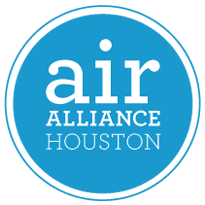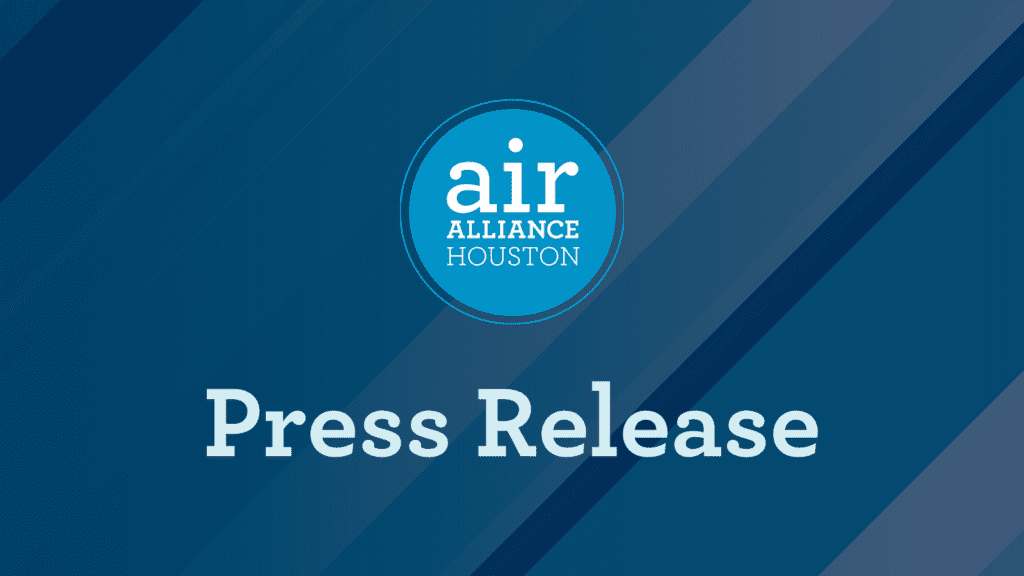Media contact: Riikka Pohjankoski, riikka@airalliancehouston.org, 713.589.7079
HOT WEATHER AND AIR POLLUTION ARE DRIVING AN UNHEALTHY OZONE SEASON IN HOUSTON
High levels of ozone in our area are linked to asthma and heart failure
The impact of another ozone season is already being felt by numerous residents of Houston. The Houston Health Department has issued frequent Asthma Air Aware Day Warnings in the past couple of weeks. After several days of air quality alerts, the latest forecast indicates that unhealthy ozone levels are expected to continue.
Over the past few years, Houston has experienced an upward trend in ozone pollution. During 2022, it saw the highest number of days with high ozone levels in the past seven years. The situation in 2023 is expected to be equally as challenging, if not worse. Already, Houston has encountered seven high ozone days this season. On a national scale, Houston ranks 9th for ozone pollution, earning the area the level of “severe” violator of federal ozone standards.
Ozone at ground level, also known as smog, is formed when vehicle and industrial emissions combine with heat and sunlight. Breathing ozone is hazardous to health and can cause breathing difficulties, throat irritation, cough, and chest pain. It can also worsen bronchitis, emphysema, and asthma. Children, people with lung disease, older adults, and people who are active outdoors, including those who work outdoors, may be particularly sensitive to ozone. With summer getting hotter and lasting longer due to climate change, there is a greater risk of Ozone Action Days, which may lead to a rise in emergency room visits and missed school or work days.
“It is necessary that Houstonians take some proactive steps to prevent ozone exposure,” said Dr. Inyang Uwak, Research & Policy Director at Air Alliance Houston. “These steps include checking the air quality index in your area using airnow.gov before planning outdoor activities and then wearing a face mask or limiting those activities to early morning or evening when ozone levels are lower. If you are vulnerable to ozone’s health effects, you may want to talk to your doctor about other preventative options.”
A call to government and industry
While we can take steps to protect ourselves on bad ozone days, preventing them from happening in the first place requires change at all levels. Industry must adhere to the emission limits of their air permits, and the state regulatory agency, the Texas Commission on Environmental Quality (TCEQ), must hold them accountable when they do not, using the power of fines and violations. Transportation policies that prioritize mass transit and non-vehicular options can also reduce the ozone from tailpipes by taking more cars off the road. Jennifer Hadayia, Executive Director at Air Alliance Houston, says, “We cannot continue with business as usual; as another Houston summer approaches, we need effective and enforceable policies and regulations to truly reduce pollution from industry and transportation.”
About Air Alliance Houston
Air Alliance Houston is a non-profit advocacy organization working to reduce the public health impacts from air pollution and advance environmental justice through applied research, education, and advocacy. For more information and resources, please visit www.airalliancehouston.org.

